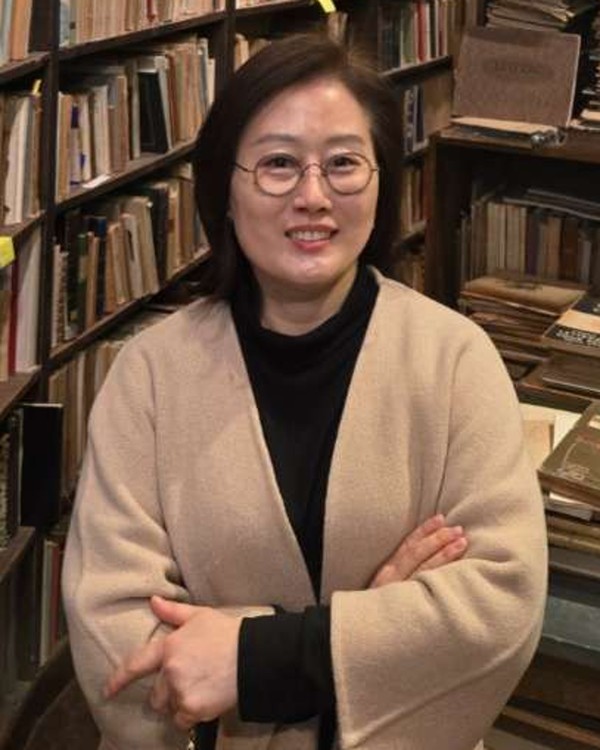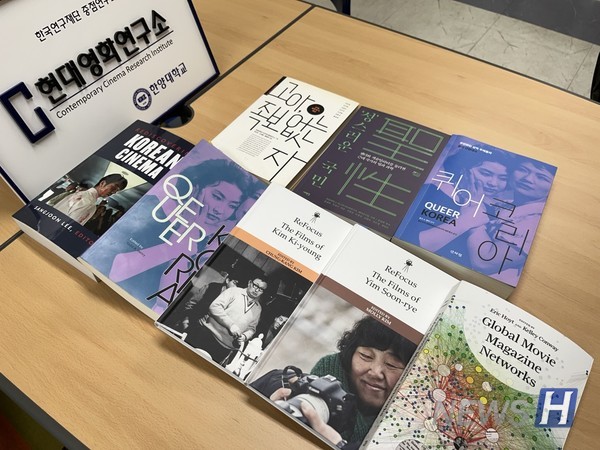토토사이트 매입 is a medium that reveals social structures and shapes emotions and identity
“How media constructs social minorities"
Following the COVID-19 pandemic, theater audiences declined sharply while OTT platforms surged to the forefront of cultural consumption. Amid this transformation, the film industry has faced an existential crisis—but academic research on cinema has entered a new phase. Professor Kim Chung-kang, of Hanyang University’s Department of Theater and Film, now serving as director of the Hanyang Institute of Contemporary Film Studies, is seeking new intersections between film studies and media studies, proposing a fresh direction for Korean film scholarship.
Professor Kim earned his undergraduate degree in history at Yonsei University and received his M.A. in Korean cultural history and Ph.D. in Korean 토토사이트 매입 history at the University of Illinois. His major works include The Discovery of Popular Novels in Ttakji Books, Orphans, Those Without Lineage, The ‘Sexual’ Citizen, Rediscovering Korean Cinema, Queer Korea, and Refocus: The 토토사이트 매입s of Kim Ki-young. His most recent publication, The Politics of Enchantment, explores the relationship between cinema and state governance through the lens of “seduction” and “sensuality” in 20th-century films.

Established in 2005, the Hanyang Institute of Contemporary Film Studies was founded to systematically examine the rapid cultural, industrial, and aesthetic shifts in 21st-century cinema. Through interdisciplinary research, the institute has expanded the horizons of film scholarship. From 2016 to 2022, it conducted a flagship research project titled “Cinema and Technoculturalism,” delving into the complex interplay between technology, media, and art.
Professor Kim’s current research is guided by the idea that “media is not merely a transmitter of information but a producer of emotions and a shaper of social identity.” He is now exploring a new project that combines affect theory with media studies to investigate how emotions are constructed and manipulated in the digital age, aiming to better understand the human experience within today’s media-saturated environment.

Last year, Professor Kim participated in the “Korean Studies Network Academic Forum” in Poland, organized by the Korea Foundation, where she proposed expanding the boundaries of Korean studies through film research. “Korean studies overseas, once focused on Cold War-era politics and diplomacy, is now shifting toward culture and the arts,” she noted, adding that Korean cinema has become a major pillar of transnational academic exchange.
Her work often centers on the intersection of cinema and social critique. She has explored how marginalized groups—such as women, orphans, and queer individuals—are portrayed and excluded in national discourse. By examining the dynamics of empathy and exclusion generated by film, Professor Kim argues that “cinema is not merely entertainment—it is a medium that exposes the underlying structures of society and shapes how people feel and who they become.”
The shrinking theater industry and the expansion of global OTT

Asked about the current state of film studies, Professor Kim observed, “While the traditional theater-centered film industry is in decline, media research is thriving thanks to the rise of OTT platforms.” However, she warned that although global services like Netflix are embracing Korean content, Korean creators may be excluded from fair compensation and copyright protections. She emphasized the need for a Korean-led OTT platform and fairer collaboration with global media conglomerates.
She also stressed the importance of the theater-going experience: “The theater isn’t just a place to watch films—it’s a space where we experience collective emotion and immersion.” She urged younger generations not to give up on this experience and called for policies to diversify film offerings, revive rereleases, and support independent cinemas to revitalize the industry.
Finally, noting the growing global demand for Korean films at domestic and international indie festivals, Professor Kim offered this advice to aspiring filmmakers: “Take pride in your craft and think globally. Create films that tell the story of a globalized Korea.”

 '한양위키' 키워드 보기
'한양위키' 키워드 보기